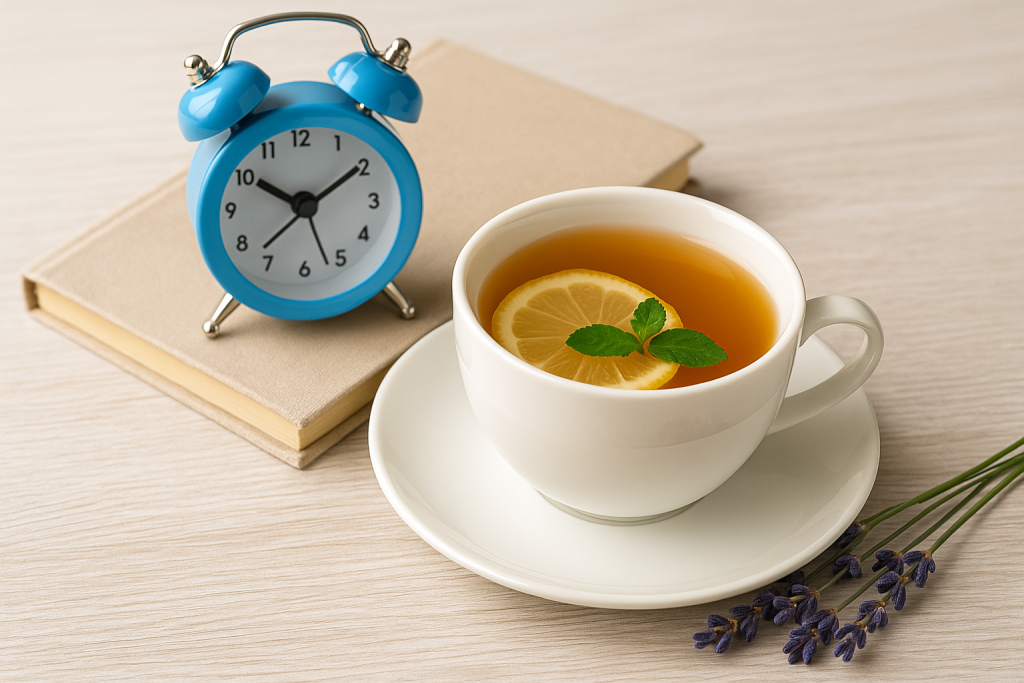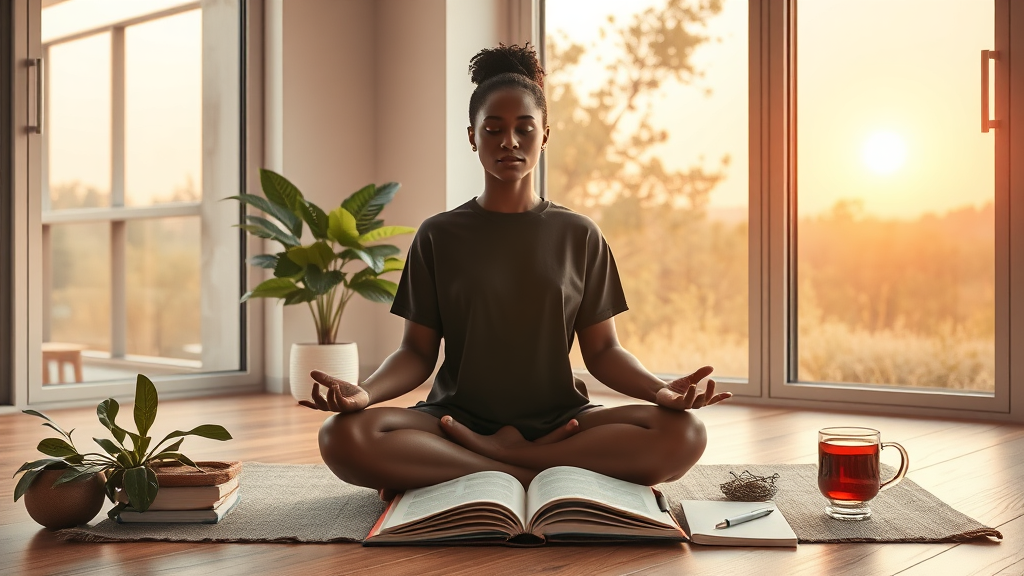Why Daily Habits Matter in Mental Wellness

In a world that constantly demands more, stress and anxiety have become common companions. While occasional stress is normal, chronic stress and anxiety can significantly affect your physical and emotional well-being. The good news? You don’t need a prescription bottle to start feeling better. Incorporating natural stress relief habits into your daily life can help you regain a sense of calm, clarity, and control.
This article will walk you through easy, science-backed daily habits that reduce stress and anxiety — naturally.
1. Start Your Day With Intention
The first hour of your day sets the tone for the rest of it.
Instead of checking your phone or diving into emails first thing in the morning, try the following mindful morning rituals:
- Gratitude journaling: Write down 3 things you’re grateful for each morning. It shifts your mindset from lack to abundance.
- Breathwork: Spend 2–5 minutes focusing on slow, deep breathing. It calms the nervous system and promotes clarity.
- Stretch or move gently: Even a short yoga flow or a walk around the block can boost endorphins and reduce morning anxiety.
When you wake up with intention instead of reactivity, you create mental space and emotional resilience for the day ahead.
2. Eat Foods That Soothe Your Nervous System
Your gut and brain are more connected than you think.
What you eat plays a major role in how you feel mentally and emotionally. Here are natural, stress-reducing foods you can incorporate:
- Fatty fish (like salmon or sardines): Packed with omega-3s that reduce inflammation and anxiety.
- Leafy greens (spinach, kale): High in magnesium, a mineral that helps regulate stress hormones.
- Fermented foods (yogurt, kimchi, kombucha): Promote a healthy gut microbiome, which supports mood regulation.
- Dark chocolate (70% or more): Contains flavonoids and magnesium that help lower cortisol levels.
Limit caffeine and sugar, which can increase anxiety when consumed in excess.
3. Move Your Body — Even if It’s Just a Little
Exercise is nature’s mood booster.
You don’t need to run marathons or spend hours at the gym to get mental health benefits. Even 20–30 minutes of moderate exercise daily can:
Follow our social media to get an daily update!
- Reduce cortisol (stress hormone) levels
- Boost endorphins and dopamine
- Improve sleep quality
- Increase self-confidence
Try enjoyable activities like dancing, walking, cycling, or home workouts. Movement should be a celebration of what your body can do — not a punishment.
4. Practice Digital Minimalism
Too much screen time = information overload = mental fatigue.
You don’t have to go completely off-grid, but setting healthy tech boundaries can significantly reduce stress:
- Turn off non-essential notifications
- Use app timers to limit social media scrolling
- Designate phone-free zones (e.g., bedroom, dinner table)
- Schedule “digital detox” hours or full days
Reclaiming your attention allows you to be more present, focused, and mentally clear.
5. Learn the Art of Saying No
People-pleasing leads to burnout.
One of the most powerful natural stress relief habits is setting boundaries — not just with others, but also with yourself. You can’t pour from an empty cup.
- Say no to commitments that drain you
- Say yes to rest and solitude
- Recognize when your stress is caused by trying to do too much
Remember: saying no to others is often saying yes to your well-being.
6. Connect With People Who Uplift You
Human connection is an antidote to anxiety.
Even if you’re introverted or busy, regular connection with people who “get” you helps release oxytocin — the bonding hormone that reduces stress. Try to:
- Call a friend or family member daily
- Join a community group or virtual meetup
- Spend time in person without distractions
Not everyone needs a therapist — sometimes a good conversation with a trusted friend can be just as healing.
7. Create a Worry-Release Ritual
Don’t suppress your anxiety — transform it.
Anxiety often builds because we’re trying to mentally juggle everything. Developing a ritual to release worry can help declutter your mind. Ideas include:
- Evening journaling: Write out what’s stressing you and what’s in your control.
- “Worry box” technique: Set a 15-minute window to worry intentionally, then close the box for the day.
- Guided meditation: Apps like Insight Timer or Calm offer free meditations that help reframe negative thoughts.
Routines like this teach your brain that it doesn’t need to be on high alert 24/7.
8. Spend Time in Nature Every Day
Nature is natural medicine.
Research shows that spending as little as 20 minutes in green spaces can significantly reduce stress hormones. Benefits include:
- Improved mood and focus
- Reduced heart rate and blood pressure
- Enhanced immune function
Don’t have access to a park? Even sitting on a balcony, walking barefoot in your yard, or listening to nature sounds indoors can help.
9. Prioritize Sleep Like Your Sanity Depends on It
Because it does.
Lack of quality sleep increases cortisol levels and makes you more reactive to stress. Here’s how to improve your sleep hygiene:
- Stick to a regular sleep schedule
- Avoid screens 1 hour before bed
- Keep your bedroom cool, dark, and quiet
- Use lavender essential oil or white noise for relaxation
Think of sleep as your body’s nightly reset button. Protect it like it’s sacred.
10. Be Kind to Yourself — Daily
Self-compassion is the foundation of emotional strength.
Replace negative self-talk with nurturing thoughts. When you catch yourself thinking, “I’m not good enough,” ask:
- Would I say this to a friend?
- Is this thought helping or hurting me?
Practicing kindness towards yourself — through affirmations, forgiveness, or simply giving yourself a break — builds emotional resilience over time.
Conclusion: It’s the Small Habits That Transform Everything
You don’t need a dramatic lifestyle overhaul to manage stress and anxiety. Sometimes, the smallest consistent habits create the biggest change.
By incorporating even just a few of these natural stress relief habits into your daily routine, you’re actively investing in your mental health — gently, sustainably, and without medication. The key is consistency, compassion, and curiosity about what makes you feel whole.
Remember: stress and anxiety don’t have to control your life. You have more power than you think — and it starts with one habit, one day at a time.



